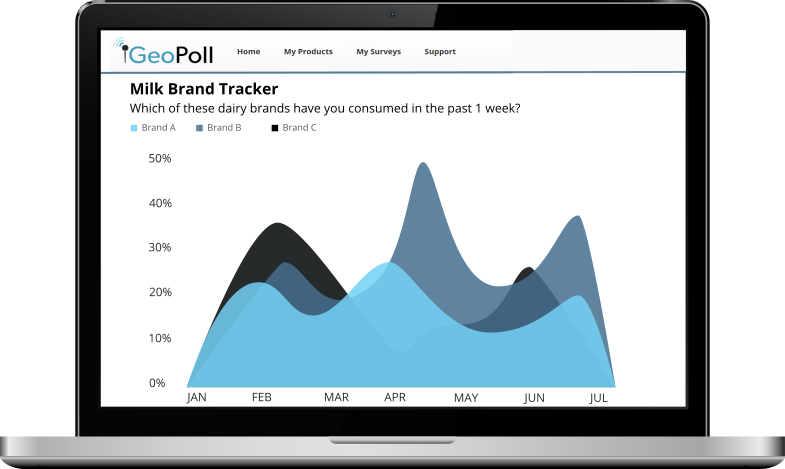- Contents
Health is, by any viewpoint, important. What physical and mental health are to the body, brand health is to businesses. In this article, we define brand health, why it is important, and key performance indicators (KPIs) for businesses to track.
What is Brand Health?
Simply put, brand health is a collection of metrics that indicate how well your brand is doing. According to Qualtrics, brand health is the way a company or brand delivers on its promises to customers.
Deloitte terms a healthy brand as one that delivers consistent, memorable, and differentiated experiences for its customers.

Why Tracking Brand Health is Important
Tracking brand health is about developing an all-encompassing picture of a company or brand, allowing it to make smart, profitable decisions that can be attributed to data. It delivers insights that help map opportunities on ways to differentiate the brand, expand brand awareness, and influence brand preference. Brand health KPIs point to ways to increase sales and delight customers, while reacting appropriately to errant aspects of the business.
In a nutshell, measuring brand health helps businesses to, among other reasons:
- Identify brand strengths and weaknesses – To determine what’s working for your branding strategy and what isn’t, look at your brand health.
- Discover the brand’s market position and keep an eye on competitors – A brand health check is an effective way to understand your position in the market, reveal your competitors, and listen to your employees and clients, with insights such as the reasons prospects choose you over your competitors.
- Get insights on the brand’s health overall (over time) – Finding out the status of your brand’s health is a chance to take a good look at its performance. Continuous tracking can give further insights on how the brand is doing over time and enable you to adapt your marketing and brand strategies accordingly.
- Discover impediments to growth – Tracking brand health points out what is preventing the brand from discovering its growth potential.
Key Brand Health Metrics and Indicators
As previously mentioned, brand health is a broad, collective term for several indicators of a brand’s continued ability to meet its goals, both internal and external. The choice of metrics and the numbers that come out of them is, of course, dependent on the outcomes the company wants. Different companies in different industries can be considered healthy, even if they are on opposite ends of the spectrum on their brand metrics if they are performing well in the metrics that matter to them.
We will now look at a few important brand health KPIs that businesses should keep track of:
Net Promoter Score (NPS)
As we explained in this post, the Net Promoter Score is one of the most important indicators of brand health, as it measures the likeliness of customers to tell others about a brand, obviously pointing to how they perceive the brand to deliver on their expectations.
Brand Awareness and Association
Brand awareness is a measure of consumers’ ability to recognize your brand. Brand association measures what consumers perceive your brand to be and what they believe it stands for. If your consumers do not know your brand or perceive it well, then there is little chance of them choosing it over competitors.
Perceived Quality
Quality is one of the most sought-after attributes by customers, even above price, as GeoPoll found out in our studies on the FMCG market in Kenya. Your quality measures and the quality consumers attach to your products may be two different things and brand health tracking helps understand the latter.
Sales
The growth of sales (or otherwise) is an indication of a brand taking root in the market and in the lives of the consumers. Sales speak to a brand’s usage and brand purchase.
Customer Satisfaction and Brand Loyalty
In our article on customer satisfaction surveys, we belabored the point that a brand’s retained customers are a lot more valuable than new customers. They are much cheaper to sell to and loyal customers often recommend your brand to all their friends and family — so, the happier and satisfied customers are with a product or service, the healthier the brand.
Online Behavior Data
Digital analytics, such as website visitors, returning visitors, time on the website, where the visitors came from (acquisition), social media engagement, etc., and how they are changing can be good indicators of how a brand is performing over time, and where the greatest interest is.
GeoPoll’s Brand Health Tracking
GeoPoll works with leading FMCG brands throughout Africa, Asia, and the Middle East who need to reach extremely specific audiences to track ongoing brand health metrics. Using GeoPoll’s mobile data collection and panel of respondents, brands can track custom metrics across multiple countries at once, enabling them to immediately view changes in brand health, product awareness, competitor positioning, and more.
Learn about GeoPoll’s Brand Health Tracking surveys solution, and contact us to discuss your goals.
